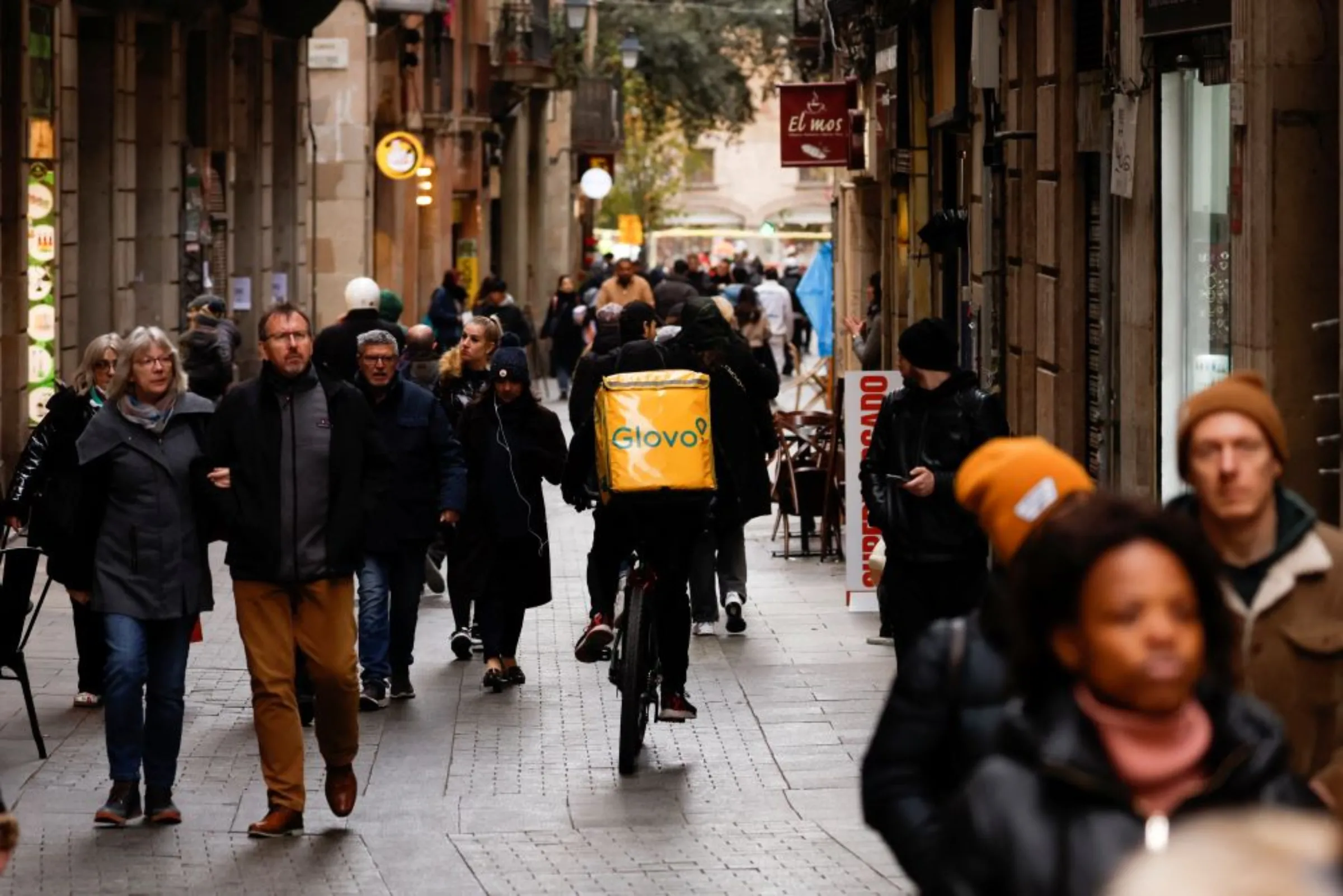
What’s the context?
EU member states reach deal on rules that could give millions of gig workers employment rights
- EU rules aim to give millions employment rights
- Digital platform companies concerned over scope
- Growing number of countries mull stronger gig worker rights
BRUSSELS – Millions of European gig workers could be recognised as employees with rights to pensions, paid leave and workplace accident insurance under new labour rules agreed by EU member states on Wednesday.
The proposals aim to stamp out what EU lawmakers describe as “bogus self-employment” among gig workers using digital platforms, from food delivery couriers to ride-hailing apps.
“If you are completely dependent on an algorithm to organise your work, your breaks, the speed with which you have to deliver things, then you are a worker and deserve social rights,” EU lawmaker Elisabetta Gualmini told a press conference on Wednesday.
While trade unions and gig workers organisations have welcomed the proposals, some digital platforms have been critical, saying that the rules will undermine rights to flexible work.
Here’s what you need to know:
What are the new rules and who will be affected?
The rules put the onus on digital platforms to show that workers hired through them are not employees.
The presumption of employment would be tested by looking at whether platforms control how work is carried out, such as by setting prices or requiring workers to wear uniforms.
Meeting two out of five indicators of control, or direction, will trigger the assumption the worker is employed by the company.
More than 5 million of the EU’s 28 million digital platform-based workers may be wrongly classified as self-employed, according to the European Commission.
The rules also seek to safeguard against abuses resulting from workplace automation, such as algorithms deciding working times, assigning clients and evaluating performance.

A Glovo delivery rider passes by a pedestrian area in Barcelona, Spain, January 24, 2023. REUTERS/Albert Gea
A Glovo delivery rider passes by a pedestrian area in Barcelona, Spain, January 24, 2023. REUTERS/Albert Gea
Under the bill, automated decisions that affect working conditions must have some human oversight, and workers would have access to the information driving those decisions.
The new rules will be subject to a final round of technical talks, then will be written into the national law of each member state and enter into force within two years.
How does this compare to gig work legislation elsewhere?
Across the globe, digital platforms are facing legal and legislative scrutiny.
Within the EU, a patchwork of national laws has led to gig workers taking digital platforms to court to establish their rights as employees, with sometimes contradictory outcomes.
In January, a French court ordered Uber to pay around 17 million euros ($18.43 million) in damages and lost salaries to a group of drivers who successfully argued they were employees, while in Belgium a court sided with Uber in a dispute over a driver’s employment status late last year.
In the United States, the Department of Labor is seeking to turn some independent contractors into employees, giving them a minimum wage, overtime pay and legal protections.
Singapore is set to extend workplace injury insurance and pension coverage to ride-hailing and food delivery workers by 2024, although they will not be considered employees entitled to social benefits like paid leave.
Chinese regulators have ordered online platforms to ensure workers earn above the minimum wage and have insurance.
India’s Rajasthan state in July approved a bill to impose a surcharge on online transactions via platforms like Amazon, Zomato and Urban Company to fund welfare benefits for gig workers, the first such scheme in the country.
Australian gig workers will be able to negotiate minimum pay and conditions under a new law defining ’employee-like workers’.
What does this mean for the gig work economy?
Platform work can boost productivity, labour flexibility and create access to jobs for marginalised groups, but lacks social protections, the United Nations’ International Labour Organization says.
Some European trade unions believe the new rules could help to change this.
“Digital labour platforms have based their business model on creating a race to the bottom on rights,” said seven major union bodies including the European Trade Union Confederation in a joint letter backing the proposed new EU laws during negotiations.
But companies like Uber and Deliveroo have said the new rules could lead to job losses, reduce rights to flexible working, and lead to more litigation over employment status.
This article was updated on December 13, 2023, to include the latest agreement on the EU deal.
(Reporting by Joanna Gill; Editing by Sonia Elks.)






